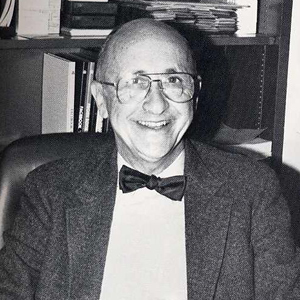Gross: Aid cuts will result in engineer shortage
 Columbia Daily Spectator, Volume CVI, Number 79, 8 March 1982
Columbia Daily Spectator, Volume CVI, Number 79, 8 March 1982
By JEREMY FELDMAN
Robert Gross, dean of the School of Engineering and Applied Science is hardly a dynamo at the podium. His gruff, direct speaking approach is reminiscent of a military general's briefing.
But last Thursday, addressing an audience of over 200 business and government officials at a conference on the promotion of high technology industry, Gross's message came across loud and clear: cuts in federally financed student aid programs will place a strain on university engineering programs, and contribute to the national shortage of engineering and computer science graduates.
"Our resources are being stretched very, very thin," Gross told the conference, held in the School of International Affairs and sponsored by a score of schools and professional organizations in New York. "Perhaps financial aid will be swept away with other federal programs."
Gross urged the high technology industry to contribute to student financial aid programs by providing money for scholarships and fellowships.
Earlier, IBM Vice President for Technical and Personnel Development Eric Bloch lamented Japan's recent inroads into the high technology industry. "In absolute numbers, Japan is overtaking the numbers of engineering Bachelor of Science graduates compared to the US," he said.
Bloch, a balding middle-aged man with a heavy German accent, supported his argument with an impressive amount of evidence—including a beautiful selection of IBM color slides which graphically indicated that "Japan, over the last decade, has invested heavily in research and development—much more than the US," Bloch concluded.
"Quality," Bloch said, is preeminent in this kind of industry." If the US fails to fund more research and development projects, it will fall behind Japan in the next decade, he claimed.
Bloch said he was less concerned with current high technology projects, such as memory chips and semi-conductors. His interest, he said, lay in the long-term—in what the industry terms "fifth-generation computers."
The development of these computers, Bloch said, "is worthwhile to watch. Not only is it worthwhile to watch, but we better do something about it if we want to be in the computer industry in the next decade."
Bang—a colorful IBM slide pops up overhead comparing percentages of the Gross National Product spent each year on research and development in the US and Japan since 1960.
U.S.: decrease. Japan: increase.
Concerned expressions and nodding heads bob up and down in the audience.
Bloch said US industry should help finance students' education so they could obtain more advanced degrees in engineering and computer science. It should also provide funds for updating old equipment in universities and for matching federally financed research grant monies, he added.
Both Gross and Bloch spoke about the need to expand the number of industryfinanced research projects at universities.
Yet despite criticizing cuts to student aid, Gross began his speech by praising the federal government for supporting research at universities. He noted that the federal government had been the major source of research funds during his entire professional career.
But Gross immediately added that industry had not competed with the government in providing research projects for universities.
